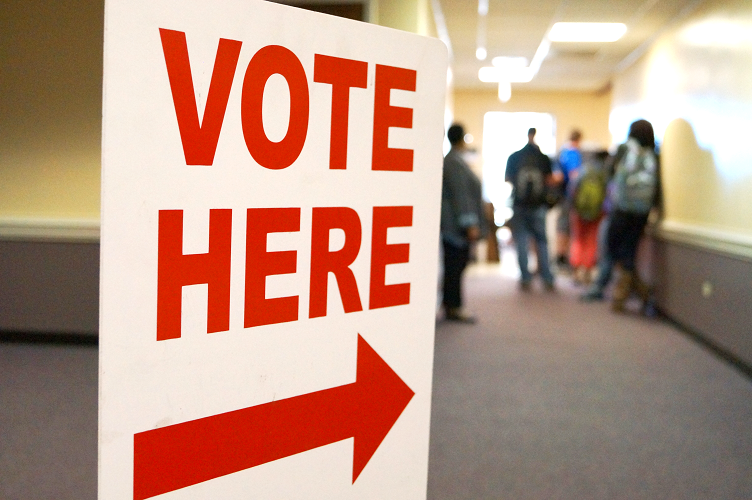Why 16-Year-Old Students Should Not Vote
Why 16 is Too Young
November 1, 2018
In recent years, with students and their push towards local activism, such as March for Our Lives, a movement countering school shootings, the question must be asked; should 16-year-old students be allowed to vote? In my opinion; no. This is not to say that high school students are not involved in politics or not politically qualified; however, I implore you to make the distinction between knowledge and maturity. I’m 17 and I would not trust myself with voting rights, which is why I don’t think 16-year-olds are any more qualified. It is quintessential that we acknowledge people, but not those that make “knee-jerk” reactions.
According to a school-wide survey in Woodford County High School, 70% of students concur that 16-year-olds should not be allowed to vote. The argument is that young teenagers are not yet mature enough to make decisions that can affect the course of a country. Locally speaking, 16-year-olds, with the exception of those that drive and have a job which we will clarify later, will absolutely affect consistent tax-payers and homeowners who may vote differently since it will affect their mortgage or house payments.
The counter-argument to not allowing 16-year-olds to vote is that if someone is old enough to drive then they should be old enough to vote. I concede that driving is a mature activity to partake in; however, that isn’t without its caveats. The CDC (Centers for Disease Control and Prevention) shows a study done in 2013 involving young people ages 15-19 involved in car accidents. The CDC writes, “In 2013, young people ages 15-19 represented only 7% of the U.S. population. However, they accounted for 11% ($10 billion) of the total costs of motor vehicle injuries.” This is important because the fact a small percentage of the population accounts for 1/10 of car accidents is alarming. So, yes, 16-year-olds can drive. And yes, they are legally allowed to; however, that does not mean that they are proficient at it.
I’ll admit that those old enough to be on a payroll pay taxes; however, it is another nuance. Students do not work full-time jobs, but rather part-time shifts; usually for a minimum wage. Those earnings vary but are drastically lower than those who are full-time workers. Yearly, full-time workers pay more in taxes than those who only work part-time.
While 18-year-olds are allowed to vote, most think even that is too young. Many make the argument questioning that if 18-year-olds are allowed to vote then why not those who are 16? To answer the question, it’s due to the 26th amendment and the Vietnam War. The amendment was passed in 1971, in the midst of the Vietnam War. The slogan was, “Old Enough to Fight, Old Enough to Vote.” 18-year-olds, by law, must sign up for the Selective Service (also known as “The Draft”) and many believed that if they must register to sacrifice their life then they should be able to vote for who is in command of their service. So while I, like many others, believes that even 18 is too young to vote; there is much more of a case supporting the lowering of the legal voting age. So, unless 16-year-olds would like to sign up early, there is no real reason justifying lowering the voting age.
While voting is an amazing aspect of our representative republic, we must still be careful who we allow to vote. As has been said, it’s not that 16-year-olds are not politically informed or educated but rather it’s their impulsiveness and lack of maturity that disqualifies them. 16-year-olds do not hold any significant stakes in the free market, they do not have full-time jobs, and they are not required to sign “The Draft”. The closest argument for allowing those of the age of 16 to vote is that they can drive. Yet, they are some of the worst drivers on the road, and this is due to the exact same impulsiveness and lack of maturity that blocks them from voting. In the debate over how old you should be when you’re able to vote, we must distinguish the difference between knowledge and maturity.


